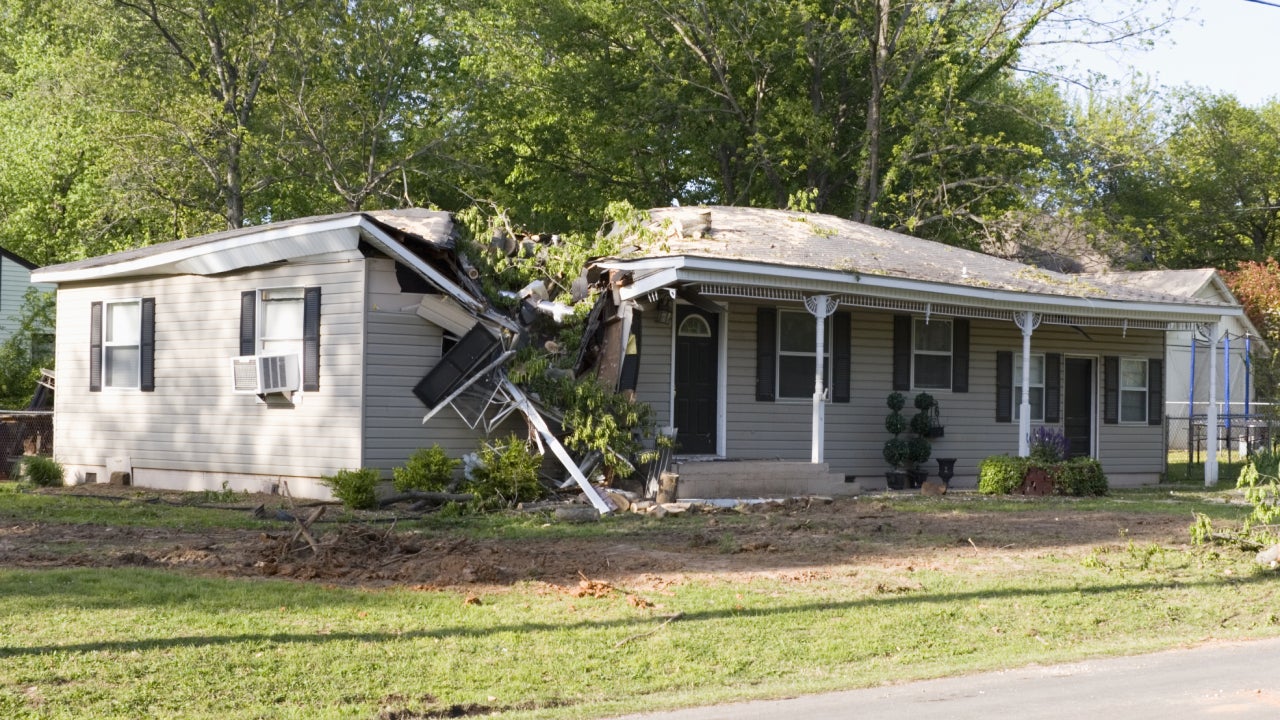Cost of selling a house in Ohio

The Buckeye State provides abundant attractive qualities that appeal to homebuyers, starting with a relatively low cost of living and less expensive home prices than many other states. Nonetheless, before you put your Ohio home on the market, it’s important to consider the closing costs and other expenses associated with selling a home here, which can add up to more than you might expect. Doing your due diligence on the cost to sell a house in Ohio will enable you to plan and budget for your transaction more effectively.
Sellers’ closing costs
Sellers in Ohio — and everywhere — should be prepared to cover closing costs, or the expenses associated with finalizing the property sale. According to the most recent data from ClosingCorp, closing costs in Ohio average about 2 percent of the home’s sale price (not including real estate commissions). And September 2023 data from Ohio Realtors shows that the average sale price for a home in the state is $275,461. So that would make average closing costs on an Ohio home $5,509.
However, not all of that sum is shouldered by the seller. Here are some of the most common closing costs for sellers:
- Title-related costs: Sellers typically pay for title search fees and the cost of title insurance, which protects against other ownership claims, but this can vary depending on the transaction.
- Legal fees: Unlike some states, Ohio does not require home sellers to hire a real estate attorney. Nevertheless, it is wise to employ one anyway, to look out for your best interests in such a large financial deal. Legal fees also vary depending on the transaction, and will be payable at closing.
- Transfer taxes: This common tax covers the cost of transferring the property’s ownership from seller to buyer. In Ohio it’s called a “real property conveyance fee” and runs about $1 for every $1,000 worth of property value — so, on a median-priced $275,461 home, it would be about $275.46.
- Outstanding property taxes and HOA fees: Sellers are responsible for covering their share of state and local property taxes for the duration of their ownership of the property, up until closing day. If it’s part of a homeowners association, the same is true for HOA fees.
-
Concessions: Like many markets across the country, the Ohio housing market is favorable to sellers. However, that doesn’t mean you can’t make a few seller concessions to sweeten the deal — offering to pay for a needed repair, for example. It’s important to note that there are restrictions on seller concessions depending on the type of mortgage loan the buyer secures, so be sure to check with your agent or attorney before making any offers.
Real estate agent commissions
In the sale of a home, both the buyer’s agent and the seller’s agent earn a commission, and both are paid by the seller. Agent commissions are negotiable, but they usually come to between 5 and 6 percent of the sale price. On a median-priced $275,461 Ohio home, 5.5 percent would come to $15,150.
Of course, home prices will differ depending on where in Ohio you are. In Cleveland, Redfin data shows that the median sale price in September was just $114,200, which would result in a much smaller 5.5 percent commission of $6,281. But in Columbus, where the median is $280,000, 5.5 percent amounts to $15,400.
Home preparation and moving costs
Preparing to sell your house demands meticulous planning and financial foresight. To enhance the property’s appeal to potential buyers, you may decide to invest in minor repairs, staging, upgrading the curb appeal, a professional cleaning and more. Your agent can help you decide what would be most useful in your particular situation.
And don’t forget to budget for the cost of moving. According to the website MoveBuddha, the cost of professional movers in Ohio averages $122 per hour. That cost can vary based on a range of factors, though, from the size of the home to the distance of the move to the time of year it’s taking place (summer moves are more expensive). And a local move will be less expensive than a long-distance one.
How much do I get from selling my house?
The actual amount of money you’ll receive from the sale of your Ohio home can fluctuate significantly. Your net profit will be subject to various factors, including the final selling price of your property, the amount of your outstanding mortgage balance and the final tally of your closing costs.
If, like many Ohio properties, your home has experienced substantial appreciation in recent years, you could see a nice profit. “Sellers can expect to receive approximately 92 to 94 percent of their home’s sale price as net proceeds, excluding what they may owe to their current lender,” says Asa Cox, owner-Realtor of Century 21 Asa Cox Homes in Painesville, Ohio. “This net amount takes into account various costs associated with the sale, including closing costs and agent commissions — unless the seller chooses to contribute more toward the buyer’s closing costs, which would impact their net proceeds accordingly.”
Reducing costs
There are several strategies sellers can employ to potentially lower their expenses. Here are some options to try:
- Negotiate a reduced real estate commission. The difference between 5 percent and 6 percent can be thousands of dollars.
- Consider listing the property “as-is,” particularly if it is not in pristine condition. This lets buyers know that you will not be spending any money on repairs or upgrades.
- Spend some time shopping around for service providers who can give you the best deal.
- Collaborate closely with your agent on the most cost-effective methods to promote your property and attract the best price possible.
Alternatives
Rather than following the conventional selling path, explore these alternatives for potential savings:
- For Sale By Owner (FSBO): By independently marketing and selling your property without a real estate agent, you can avoid paying a listing agent’s commission.
- Cash homebuyers and iBuyers: Various real estate investment companies actively seek properties for either flipping or long-term rentals, paying in cash with no fees and closing quickly. Two of the biggest iBuyers, Opendoor and Offerpad, both also operate in select Ohio markets and make similarly speedy cash offers. These can be a good option if you need to sell fast, but the prices they offer are not likely to be as high as you could get in a traditional sale.
- Home equity: If you’re selling because you need the proceeds urgently, you might be able to access the cash you need by tapping into your home equity instead, in the form of a loan or line of credit.
- Renting it out: If you can afford not to sell, consider becoming a landlord and renting the property out. “The advantage here is a steady stream of income over time, but the drawback is not receiving the full sale proceeds in a lump sum,” says Cox. It can also lead to “challenges like liability concerns, increased property maintenance responsibilities, the need to handle rent collection and more.”
Next steps
Ready to sell? Do your research, crunch the numbers and diligently estimate the potential costs associated with selling before deciding to list your home. Then engage the services of a local real estate agent with a deep knowledge of your Ohio town — and ideally, even your specific neighborhood. An agent’s professional expertise can help you sell your house for the highest price, and at the lowest cost to you.
FAQs
-
The bulk of your costs as a seller will come in the form of real estate commissions. These typically range between 5 and 6 percent of a home’s sale price. Given that the average sale price of an Ohio home is $275,461, 5.5 percent of that would come to $15,150. You’ll also have to factor in closing costs and the costs of preparing your home for the market.
-
You do not necessarily need a Realtor, agent or broker to sell a home in Ohio. Many sellers choose a for-sale-by-owner approach — but doing it all yourself is a lot of work, and there’s a lot of money at stake. Working with an experienced agent will typically score you a better price and a smoother, more hassle-free transaction.
Why we ask for feedback Your feedback helps us improve our content and services. It takes less than a minute to complete.
Your responses are anonymous and will only be used for improving our website.
You may also like

What disasters does home insurance cover?




